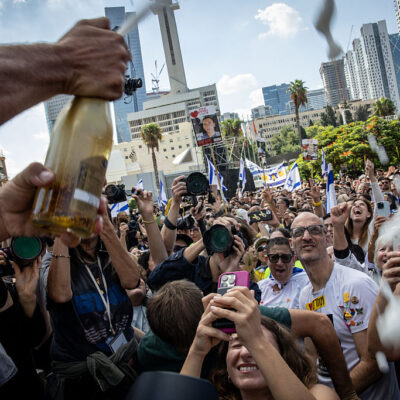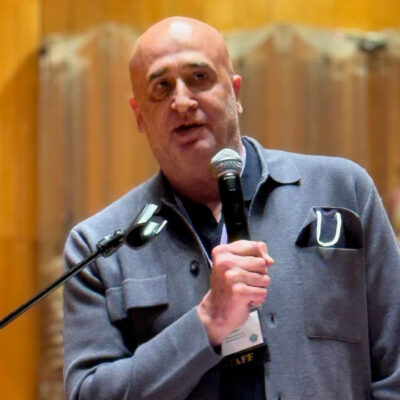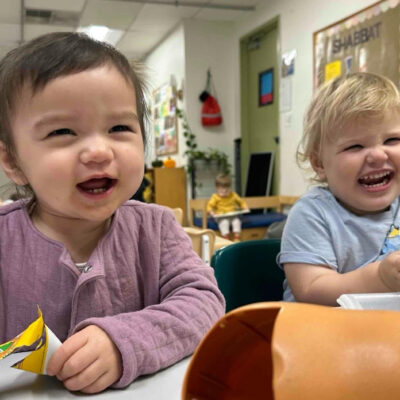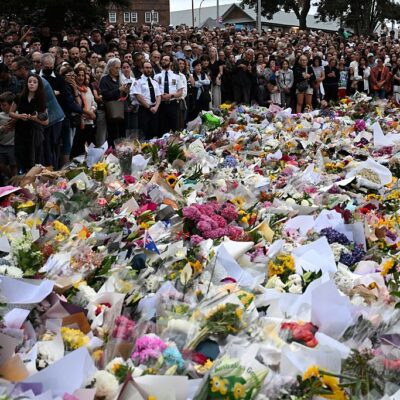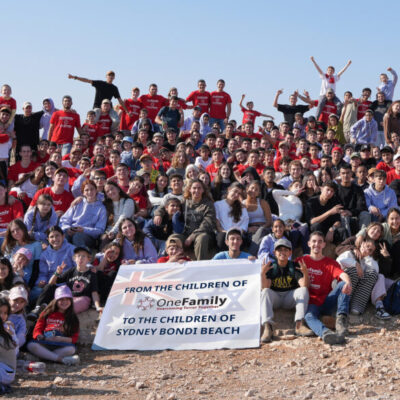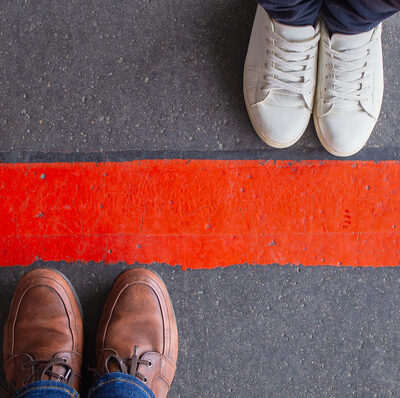Feed the Soil, Not the Plants

[This essay is from The Peoplehood Papers, volume 17 – Engaging Millennials with Jewish Peoplehood What Does It Take? – published by the Center for Jewish Peoplehood Education.]
By Rebecca Bloomfield
“When a flower doesn’t bloom, you fix the environment
in which the flower grows, not the flower.”
Alexander Den Heijer
It wasn’t exactly how I’d always pictured my time under the “chuppah.”
Yes, I was dressed up, and we were surrounded by a sea of smiling faces, but we were also in a barnyard, and among the sea of people were goats in costume. I was cradling a bundle of perfectly-braided, just-baked challot in my arms like a baby. To my left was a Rabbi. To my right was an Adamah farmer, her arms over owing with green leaves of varying shades, shapes, and tastes, but with bright colors poking out here and there, as if a painter had desired a little something extra.
This wasn’t your average first-fruits & costumed-goats parade.
At Isabella Freedman, home to the Adamah Jewish Farming Fellowship, we were celebrating Shavuot, the parade being a culmination of a three day festival of prayer, learning, and receiving.
Growing up a Jew who attended Sunday school and Hebrew school, I don’t think I ever learned about Shavuot, or if I did it certainly never involved anything outside the synagogue walls (let alone radishes and goats). In addition to the Hebrew alphabet and Jewish traditions, I did learn other things within the synagogue walls: I learned that I could be told what to believe by someone above me, and I learned Jewish customs & rituals by rote. I have since discovered and rediscovered Adamah, where this still life painting of Judaism – its holidays, rituals, and tensions – comes to life.
As organic farmers, we feed the soil – not the plants: we use cover crops to amend and protect the soil, we rotate the placement of our crops from one season to the next, and we regularly add homegrown compost to our soil. All of these practices cultivate a soil texture and nutrient level from which our plants can then thrive. This foundational farming practice has proven to be sustainable – requiring little to no external inputs or short-term fixes.
Similarly, for millennials to sustain an authentic connection to Judaism, we have to help create a nourishing environment, from which they can thrive, rather than feeding them prescriptions about how to be a good Jews, or imbuing them from the outside with a sense of obligation. In Adamah – through a unique combination of farming, leadership training, and Jewish learning – we provide experiences for fellows not only to connect to their inner purpose and spirituality, but to go through this process with others who are doing the same. We rise before the sun, chanting prayers together with tunes that stir the soul and demand repetition. It is from that authentic connection to self and others that their sense of peoplehood is developed and sustained.
Adamah bookends the past ten years of my life. On one end I was a fellow in the program, and on this end the Associate Director. It’s not the farming or the Judaism that boomeranged me back to Adamah; it’s the community. The community goes beyond the other fellows that I shared three intimate months with in 2005; it extends to every single other stranger, acquaintance, and friend who has been an Adamah fellow over the years. The connection created by the experience of farming, praying, singing, laughing, compromising, opening, experimenting, and learning with others in this context is palpable and otherwise indescribable. It runs deep. It is family, it is Jewish, and it is peoplehood.
Since being an Adamah fellow in the Fall of 2005, Rebecca Bloomfield’s values of good food, strong community, and the connection to something-greater has brought her back to Hazon’s Adamah Fellowship as the Associate Director.

 Add EJP on Google
Add EJP on Google